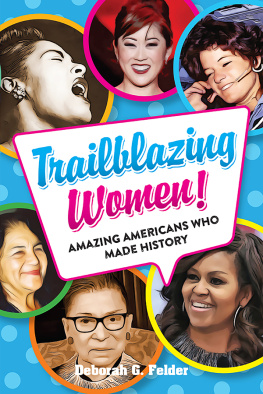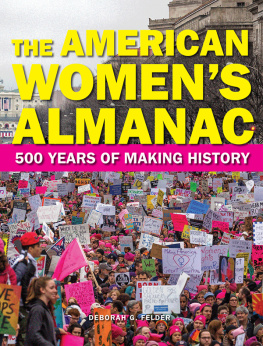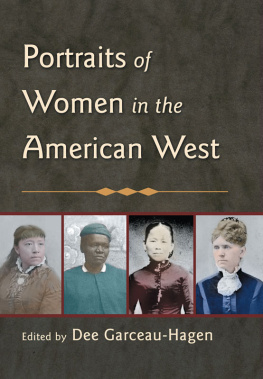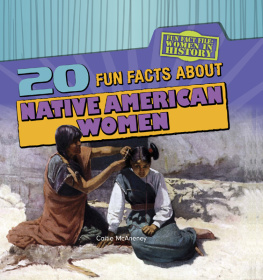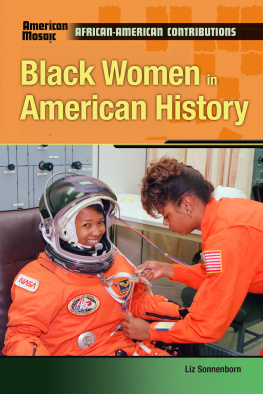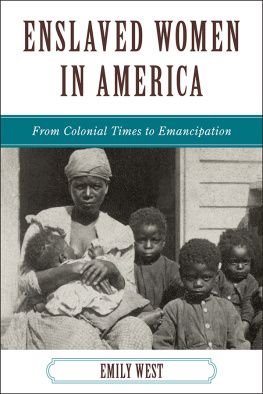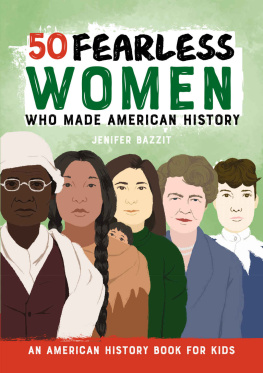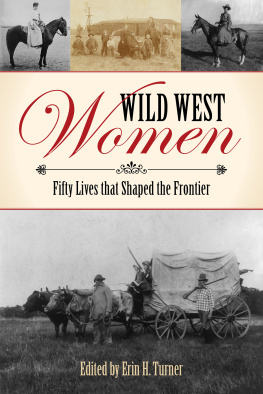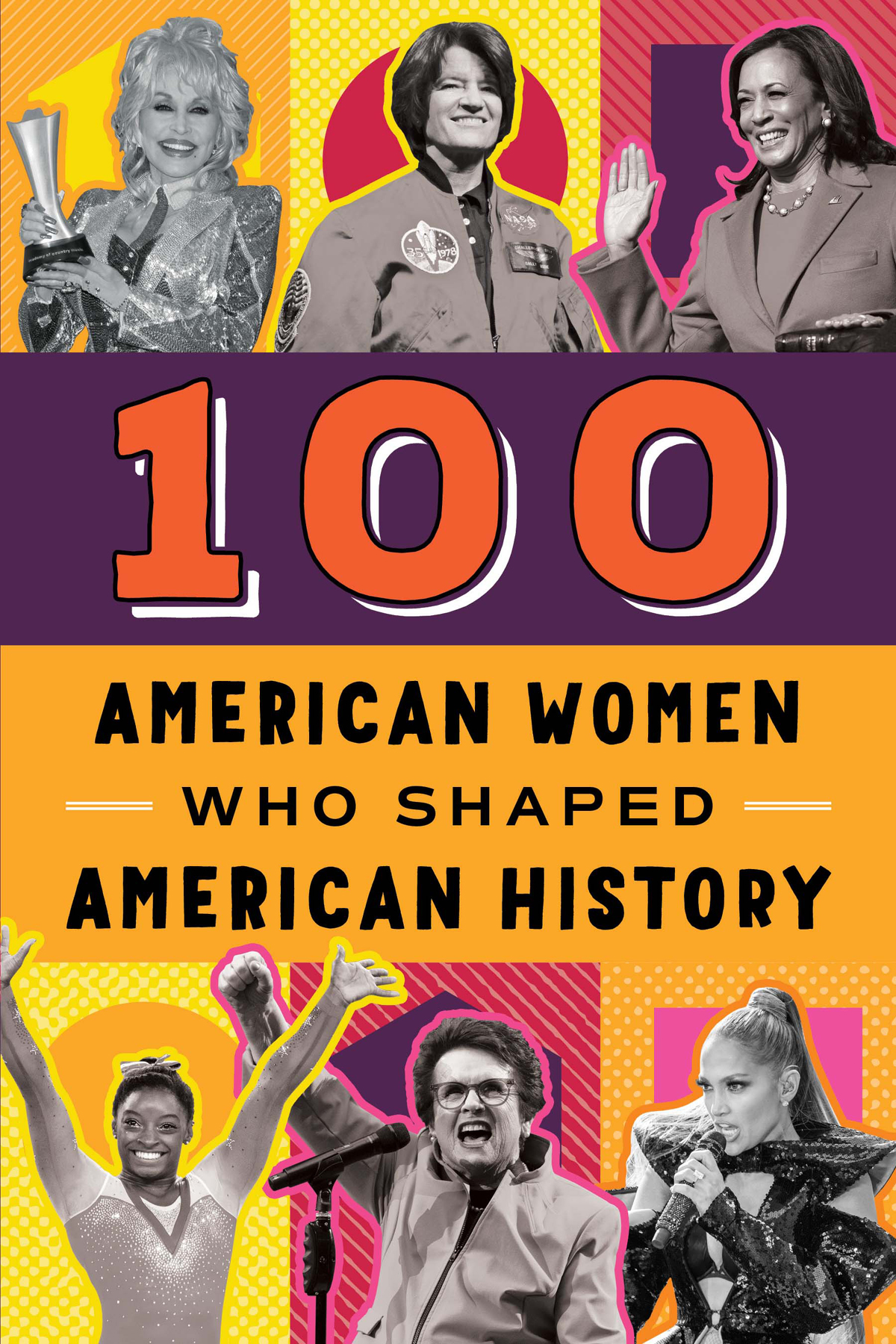Contents
Guide
Pagebreaks of the print version
Copyright 2005, 2022 by Sourcebooks
Text by Deborah G. Felder
Illustrations by Westchester Publishing Services
Series cover design by Emma Hall
Cover images Alan C. Heison/Shutterstock, lev radin/Shutterstock, BiksuTong/Shutterstock, Petr Toman/Shutterstock, Kathy Hutchins/Shutterstock
Cover and internal design 2022 by Sourcebooks
Sourcebooks and the colophon are registered trademarks of Sourcebooks.
All rights reserved.
This publication is designed to provide accurate and authoritative information with regard to the subject matter covered. It is sold with the understanding that the publisher is not engaged in rendering legal, accounting, or other professional service. If legal advice or other expert assistance is required, the services of a competent professional person should be sought. From a Declaration of Principles Jointly Adopted by a Committee of the American Bar Association and a Committee of Publishers and Associations
All brand names and product names used in this book are trademarks, registered trademarks, or trade names of their respective holders. Sourcebooks is not associated with any product or vendor in this book.
Published by Sourcebooks eXplore, an imprint of Sourcebooks Kids
P.O. Box 4410, Naperville, Illinois 60564410
(630) 961-3900
sourcebookskids.com
Originally published in 2005 by Bluewood Books, a division of The Siyeh Group, Inc.
Cataloging-in-Publication Data is on file with the Library of Congress.
Contents
Introduction
This book contains the stories of one hundred extraordinary American women whose outstanding contributions have shaped our history from colonial times to the present day. Many of the women whose biographies are described in these pages are so famous that it is no surprise to find them in a book titled 100 American Women Who Shaped American History. Others may be less well-known, but their stories are no less compelling.
Many of the women you will read about endured poverty, racism, sexism, and other obstacles in their struggle to succeed, yet despite these structural inequities, they were determined to reach their goals.
These women transformed their lives, and in so doing, they had a major impact and influence on their country and the lives of the women who followed them.
The experiences of American women are as diverse as the nation we have become. However, the women featured in this book had one thing in common: they were willing to challenge societys traditional, often male-dominated notions of gender, class, politics, economics, and culture.
Sometimes the cost of rebellion was high. During the colonial era, the Massachusetts government banished Puritan leader Anne Hutchinson from the colony for breaking a law that forbade women from preaching. In the nineteenth century, journalist Nellie Bly revealed the poor conditions of female prisoners after being arrested herself. In the early twentieth century, at a time when providing information on contraception was illegal, Margaret Sanger was also arrested after opening a birth control clinic.
Women have always fought for change. In the mid-nineteenth century, abolitionist sisters Sarah and Angelina Grimk spoke out publicly against slavery. During the nineteenth and early twentieth centuries, social reformers and activists such as Frances Willard, Florence Kelley, Rose Schneiderman, and Eleanor Roosevelt worked to better conditions for women in society and in the workplace.
Better education for girls and women became a reality thanks to the efforts of educators and activists like Emma Willard and Sarah Josepha Hale. The battle for womens suffrage was finally won because of the contributions of Belva Ann Lockwood, Julia Ward Howe, and Alice Paul. In the 1950s and 1960s, Septima Poinsette Clark, Ella Baker, and Mamie Till were at the forefront of the Civil Rights Movement.
The achievements of American women in such areas as the arts, government, aviation, science, and sports have been remarkable. From composer Florence Price to novelist Edith Wharton, American women artists have influenced the ways in which we see the world. Supreme Court Justice Sandra Day OConnor and Secretary of State Madeleine Albright were two of the first women to reach the highest levels of government. Jacqueline Cochran, Mae Jemison, and Sally Ride inspired young women to seek careers in aviation and space flight.
Our understanding of disease, genetics, the environment, and computers has been transformed by the work of such scientists as Gertrude B. Elion, Florence Bascom, and Patricia Bath. In addition, Billie Jean King, Althea Gibson, and Simone Biles defied gender and racial stereotyping to become world-class athletes.
These are only some of the many inspiring women whose stories make up this book. As you scan through the various biographies or read each individual entry, one thing will become clearAmerican women began to shape history from the birth of the nation and have continued doing so for centuries.
1. Anne Hutchinson c. 15911643

Challenging the rigid Puritan religious doctrine of sixteenth-century New England was a courageous and risky undertaking, especially for a woman. However, Anne Hutchinson was willing to risk everything she had for religious freedom.
Born in Alford, Lincolnshire, England, Anne was the second of thirteen children of Francis Marbury, an Anglican clergyman. Marburys open-mindedness and dislike of authority constantly set him at odds with the strict religious establishment. Anne learned religious doctrine from her father and would later show that she had inherited his independent spirit.
In 1612, Anne married William Hutchinson, a well-to-do businessman. The couple lived in Alford, where Anne gave birth to twelve of their fifteen children. There she came under the influence of John Cotton, an Anglican minister who followed the Puritan sect. When the Anglican authorities condemned Cotton for his beliefs and forced him to flee to the Puritan-dominated Massachusetts Bay Colony, Anne convinced her husband that they should follow him there.
The Hutchinsons arrived in Boston in 1634. William prospered in the cloth trade and was a deputy to the colonys General Court. Annes brilliant mind, gentle nature, and nursing skills won her the admiration of prominent Boston women. While tending to them, Anne discovered that her beliefs differed from the established Puritan doctrine on which the colonys society was based. This doctrine, the covenant of works, held that salvation could be achieved through hard work, good deeds, and righteous behavior.
Anne believed in a covenant of grace, in which salvation lay in an individuals personal faith in God and could be obtained without relying on the help of a minister or priest.
Anne began to hold weekly meetings for women to discuss scripture and church sermons, and she also started to preach her unique beliefs. She criticized the traditional teachings by Puritan leaders. The meetings grew into large public gatherings attended by men and women, including some of Bostons leading families.


